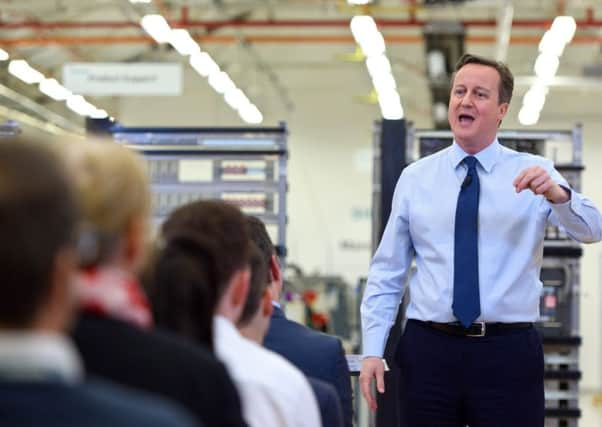John Curtice: Cameron didn't get all he asked for from EU


Almost inevitably, the Prime Minister has not got everything he wanted, not least on welfare benefits for EU migrants. Rather than denying them in-work benefits for a full four years, their entitlement will gradually be phased in. The UK’s right to do even this will be subject to an as yet unknown time limit.
Meanwhile, so far as the payment of child benefit to EU migrants whose children are not living in Britain is concerned, this will be paid at a rate that is indexed to the standard of living of the country in which those children are living rather than stopped altogether.
Advertisement
Hide AdAdvertisement
Hide AdStill, given the degree to which ‘freedom of movement’ is an EU article of faith, it is arguably surprising Mr Cameron has got as much as he has. What remains to be seen is whether he can persuade those many voters whose inclination to vote to leave is fuelled by concern abut immigration that these changes will be enough to reduce EU migration.
• READ MORE: David Cameron: Deal makes EU ‘worth fighting for’
But arguably those that Mr Cameron needs above all to persuade he has got a good deal are not voters but his own MPs. He needs as many of them as possible to back a Remain vote, and thereby help persuade Eurosceptic Tory voters they should do so too.
For many Tory MPs what will matter most is whether they think Mr Cameron has reclaimed Britain’s sovereignty. Certainly Mr Cameron has secured a beefing up of the existing procedure whereby national parliaments can object to EU laws – but the Commons will still only be able to halt something if many another national parliament objects too.
Some MPs too may be concerned that the change to the EU treaties that will be required to make some of what Mr Cameron has negotiated permanent will have to await a treaty change at some unspecified time in the future. There may be still yet be quite a lot more crucial agonising on the Tory backbenches.
• John Curtice is Professor of Politics, Strathclyde University, and ESRC Senior Fellow, ‘The UK in a Changing Europe’ programme.